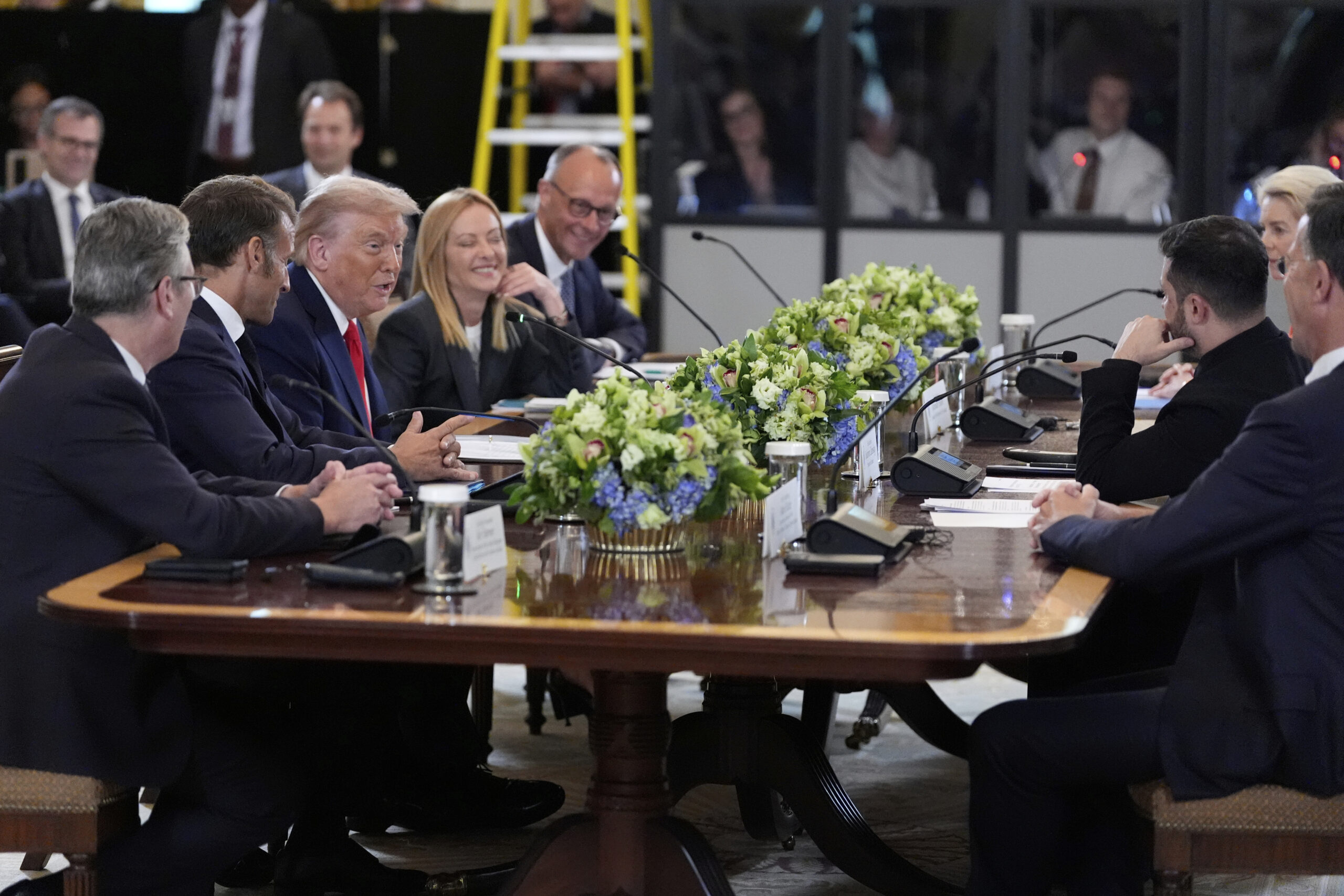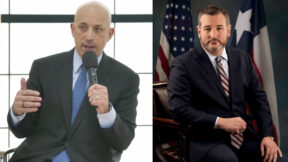European Leaders Are Flattering Trump at White House War Summit — That Makes Them Smart

(AP Photo/Alex Brandon)
The European leaders who converged on the White House for a high-stakes summit to discuss the ongoing war between Russia and Ukraine on Monday are playing their cards exactly right.
President Donald Trump appears to have come out of his meeting with Russian dictator Vladimir Putin last Friday with renewed optimism that he might be able to end the conflict. Unfortunately, at least some of that optimism appears to be rooted in his confidence in the ex-KGB agent’s commitment to peace.
On Sunday evening, Trump previewed the summit by declaring that “President [Volodymyr] Zelenskyy of Ukraine can end the war with Russia almost immediately, if he wants to, or he can continue to fight.”
“Remember how it started. No getting back Obama given Crimea (12 years ago, without a shot being fired!), and NO GOING INTO NATO BY UKRAINE. Some things never change!!!)” he added. It would appear that Putin provided Trump with a faulty reminder of how “it” started, and managed to convince him that the onus lies with Zelensky to end the war.
That placed the Ukrainian leader — and the rest of Europe’s leaders — in a difficult position heading into Monday’s meetings. They must hold firm in their position that Ukraine ought not be coerced into an unfavorable peace, but they also must take care not to offend Trump and push him into Putin’s corner.
Cue the implicit and explicit flattery.
First, there was the pageantry of the day, which the president is known to adore. News networks provided special coverage as many of the world’s most powerful men and women arrived at the White House one by one. Then Trump got a “family portrait” of himself flanked by a who’s who of Europe snapped on his home turf. That alone likely endeared the participants to him.
“It’s very interesting because this is the first for the White House. They can’t say that very often — it’s seen a lot over the years, over the-, since 1800, 1799, to be almost exact. But this is a first where we’ve had so many prime ministers, presidents, the heads of European nations,” said Trump while beaming at the center of a long table in the White House’s East Room on Monday afternoon, where the ensemble of leaders took care to tend to Trump’s self-conception, and Zelensky himself set the example for his peers.
“I think that we had a very good conversation with President Trump,” he announced. “And it really was the best one. Or, sorry, maybe the best one will be in the future — but it was really good.”
Zelensky went on to praise First Lady Melania Trump for her recent letter to Putin addressing the issue of kidnapped Ukrainian children, to thank Trump for presenting him with a battlefield map (“It was great!”), and to refrain from interrupting when Trump, rather dubiously, asserted that “I think you’ll see that President Putin really would like to do something also.”
The others followed his lead.
NATO Secretary General Mark Rutte thanked “dear Donald” for having “broke the deadlock” in negotiations.
The European Union’s Ursula Von Der Leyen opened her remarks by referring to “the largest trade deal ever” (“That’s right,” agreed Trump) and expressed her gratitude.
“The path is open — you opened it last Friday,” German Chancellor Friedrich Merz told Trump.
“Something is changing, something has changed thanks to you,” declared Italy’s Giorgia Meloni.
This was the only sensible approach.
Tragically, Trump genuinely enjoys Putin and believes in the strength of their relationship. A hot mic on Monday caught him telling another attendee (it looked like France’s Emmanuel Macron) that he thinks Putin “wants to make a deal with me.” Everyone visiting the White House knows that only holds true if Trump is willing to make a deal that would give away Ukrainian territory and fail to deter Putin from invading again in the future.
But they also all have had enough experience with Trump at this point to recognize that simply telling him he’s wrong to his face is a fool’s errand — and bound to backfire spectacularly. It’s much better to treat the public-facing meetings in front of the press like an adulatory Cabinet meeting, gently warn him of Putin’s intentions behind the scenes, and capitalize when the Russian dictator inevitably disappoints him.
Savvy world leaders know how to play to Trump’s ego — even if they shouldn’t have to.
This is an opinion piece. The views expressed in this article are those of just the author.





Comments
↓ Scroll down for comments ↓